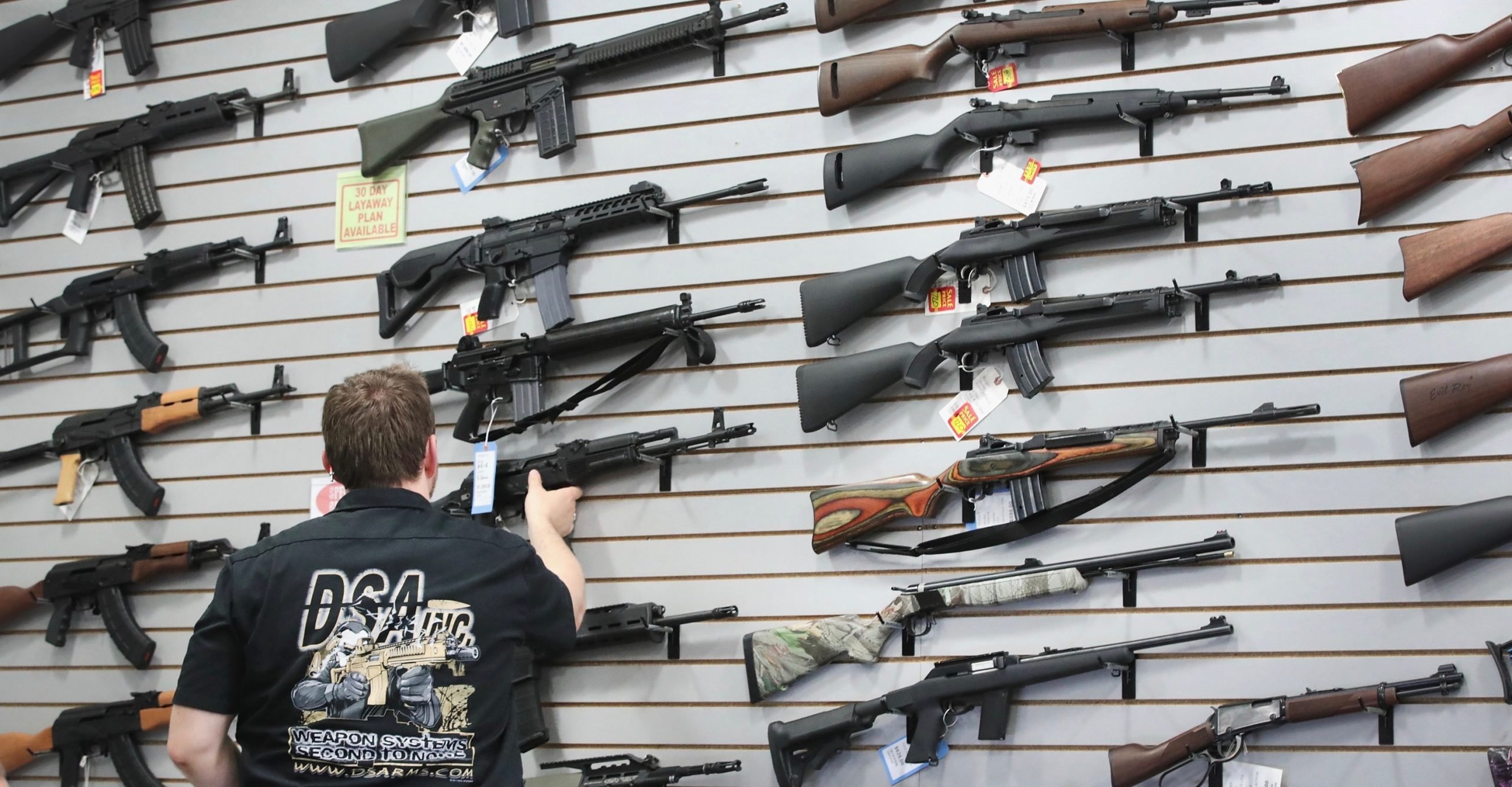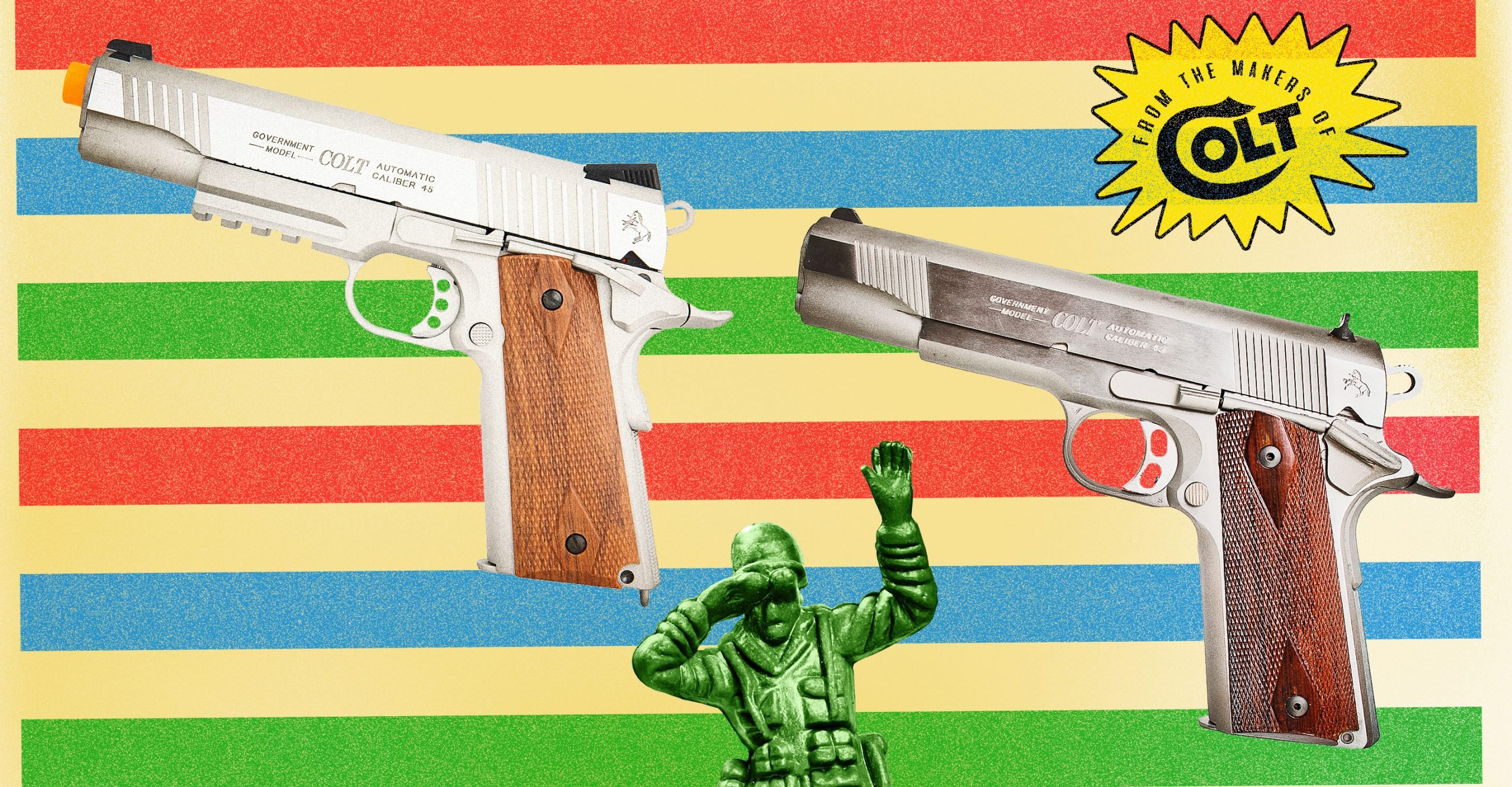A New York State congressman has proposed overhauling federal firearms laws to mandate security systems and more frequent inspections of gun stores, marking one of the most sweeping pieces of legislation to emerge out of widespread concerns over break-ins at gun retailers nationwide.
The legislation, introduced on May 10 by Representative Joe Morelle, a freshman Democrat from Rochester, follows a two-year investigation by The Trace and The New Yorker that showed how weak security measures have led to escalating theft from gun stores. The interactive story tracked stolen weapons that criminals used to rob and kill people.
Morelle’s 17-page bill would require the attorney general to develop rules to ensure that gun stores are fortified against theft. The regulations would mandate the use of locked metal cabinets and safes, surveillance cameras and alarm systems, and short posts — known as bollards — staked outside to prevent thieves from ramming a car through the storefront. Frequent violators could be fined up to $20,000 and forced to close.
“This is a way to cut off a significant supply of stolen guns from getting out on the streets,” Morelle said in a phone interview. “I think if you asked most Americans they would first of all be surprised at the lack of security requirements to begin with, and then when you told them these were being proposed, the vast majority would say, ‘It seems like a reasonable thing to do.’”
Morelle is also advocating that federal investigators visit gun stores at least once every three years, or annually if the stores exhibit signs of being particularly problematic. To make that possible, the bill would authorize the Bureau of Alcohol, Tobacco, Firearms and Explosives to hire 650 additional personnel, about doubling its current pool of inspectors. In addition, the bill would broaden access to federal data on guns used in crimes, long a goal of researchers and journalists wishing to probe the ways that firearms enter the black market.
Morelle’s legislation is one of at least three pending security mandates sponsored by Democrats. The other two, introduced by Senator Dick Durbin and Representative Brad Schneider, both of Illinois, would prescribe similar security measures but stop short of authorizing additional ATF personnel.
Morelle, who is also a co-sponsor of Schneider’s bill, said the extra inspectors are needed to increase the likelihood of penalties should stores’ security systems fall below par. “The ATF simply doesn’t have enough people,” he said. “But if dealers know there’s not going to be an inspection, whether or not they are abiding by the law or meeting all the requirements is questionable.”
The added personnel would significantly boost the ATF’s ability to police the gun industry. As of 2018, there were some 56,000 gun dealers in the country; that figure rises above 135,000 when manufacturers, importers, and other so-called federal firearms licensees are thrown in. The ATF tries to inspect each licensee at least once every three to five years, but it has consistently fallen short of this self-imposed goal: A 2013 ATF report found that less than half of licensees had been inspected in the previous five years. Since 1975, the bureau has never inspected more than 10.6 percent of licensees in a given year. During fiscal year 2018, the bureau had 641 investigators deployed for inspection activity, but they inspected fewer than 8 percent of all licensees.
The Trace and The New Yorker co-published their two-year-long investigation in February. It centered on a burglary crew that relied on saws, bolt cutters, and other tools acquired from local hardware stores to steal some 200 firearms from mom-and-pop shops in North Carolina. Often, the break-ins took only a couple of minutes to complete. Within three years, 68 of the guns were involved in crimes across five states, including multiple robberies, two homicides, and a sexual assault.
Federal law does not require gun stores to adopt any specific security measures. This stands in contrast to pharmacies, explosives dealers, and banks, which are held to strict security standards. Four states have addressed this gap, implementing mandates on gun stores within their borders. But those rules are often weak or unenforced. One exception is New Jersey, where thieves stole 28 firearms between 2014 and 2018, the third-lowest rate out of any state in the country.
Nationwide, gun stores and other licensees reported the theft of more than 38,000 guns over that five-year period, with the highest totals in Texas, Georgia, Florida, North Carolina, and Alabama.
Previous attempts to pass security requirements have met resistance from store owners who see the costs as a threat to their already low-margin business. Gun rights groups have also been strongly opposed. When Illinois state lawmakers proposed a bill in 2017, the National Rifle Association’s lobbying arm sought to rally members in opposition by saying it was “designed to shut down as many FFLs as possible.” That bill failed, but a subsequent version was signed in January by the state’s new governor, J.B. Pritzker, and the rules are slated to take effect this year. At the federal level, bills filed in recent years have never advanced beyond committee.
Morelle is a longtime elected official who served as majority leader in the New York State Assembly before winning a seat in Congress last year. The issue of gun store thefts caught his attention after a set of headline-generating break-ins at a gun shop in a Rochester suburb. According to court records and news reports, in August 2018, a 21-year-old man wearing a New York Yankees baseball cap made a hole through an exterior wall of Chinappi’s Firearms & Supplies and stole multiple guns out of the basement. The shop owner subsequently boarded up the hole, but the fix was not enough, enabling the same burglar to strike again four days later.
“Failure to properly secure this store has resulted in a tremendous threat to the safety of the people of this county,” the county sheriff, Todd Baxter, told the Democrat & Chronicle. “This cannot be tolerated.”


